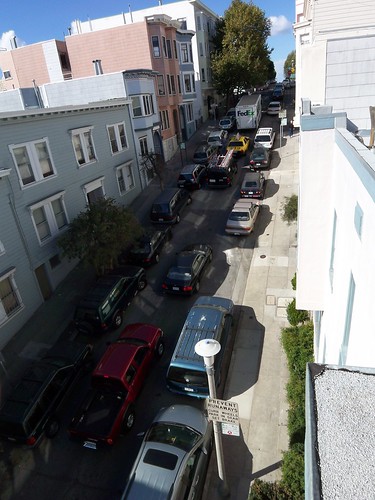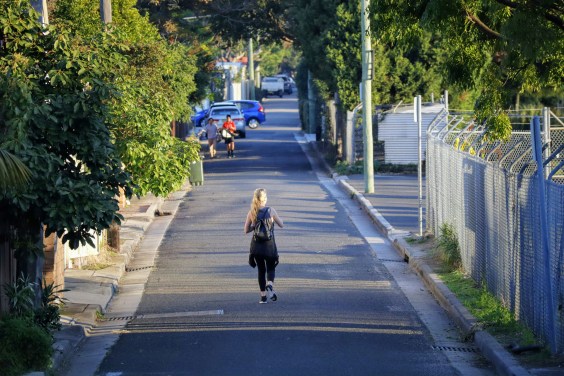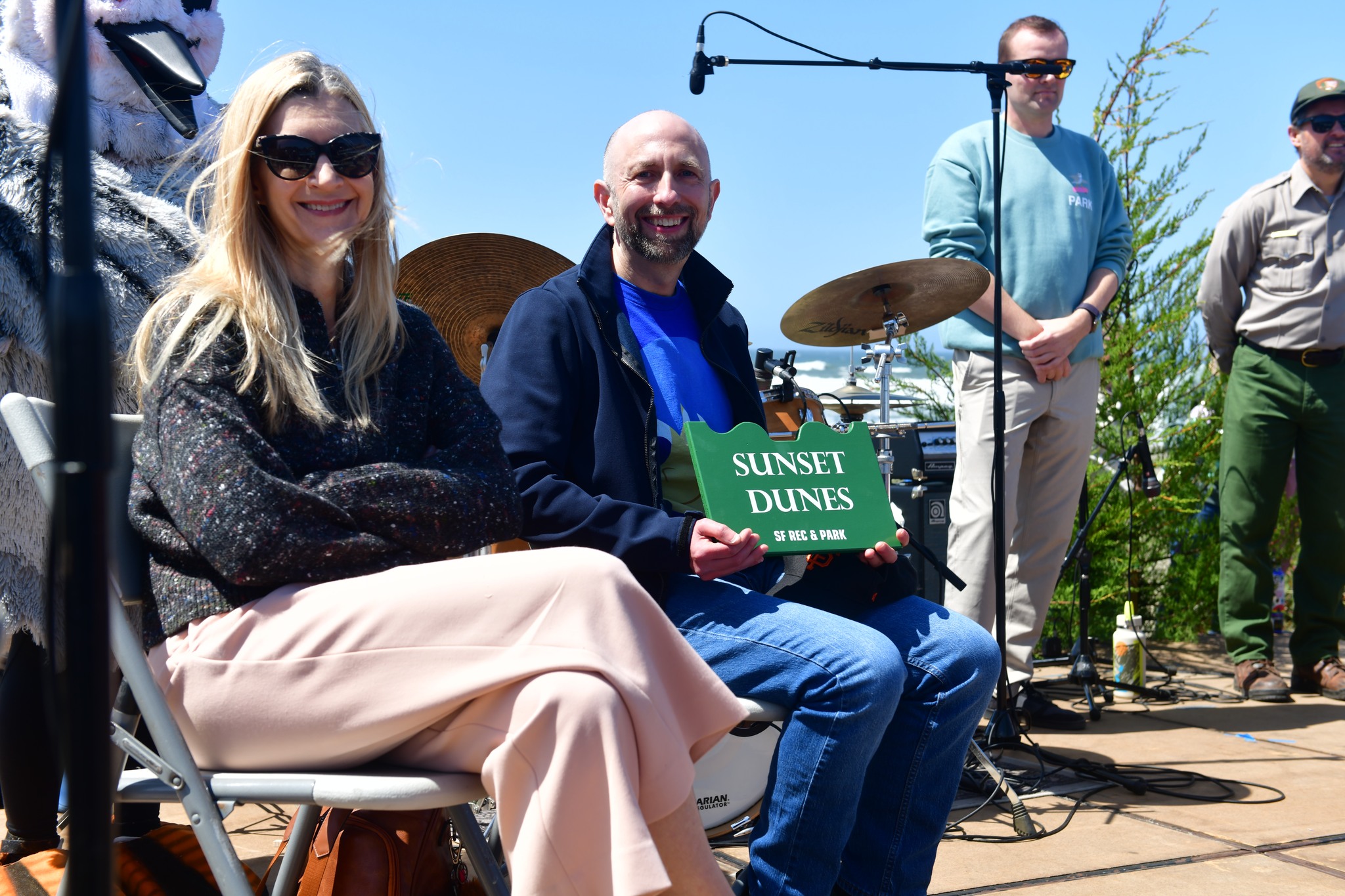Giving away free curbside car parking when it's in demand on Sundays and evenings just doesn't make any sense.
The point may feel somewhat belabored to Streetsblog readers, but it's highly relevant at the moment and hugely important for the city's streets and transit system. Political momentum to end the traffic congestion and dysfunction caused by unregulated parking on Sundays and evenings finally seems strong as the measure comes up for approval next month in the SFMTA's two-year budget.
Although rationalizing curbside parking throughout the week still faces opposition from some church leaders and other members of the public, key SFMTA decision-makers and stakeholders seem to be on board, for the most part.
But it was only two years ago that then-Mayor Gavin Newsom pressured the SFMTA Board of Directors into ditching the idea. And Mayor Ed Lee has indicated that he might do the same.
While the political climate among city supervisors is unclear, the policy has mostly met with support this time around from SFMTA Director of Transportation Ed Reiskin, the SFMTA Board of Directors, an advisory panel of community stakeholders, and the members of the public who have attended the three town hall meetings on the SFMTA budget so far.
Reiskin told Streetsblog that although he doubts "the general public at large would necessarily be supportive" of the policy just yet, support from those groups "will weigh heavily" on whether it goes through.
"The MTA was set up to be somewhat independent and autonomous from City Hall... but I think I have a responsibility to make the people who were elected by the people of San Francisco comfortable with [the budget] I'm presenting," said Reiskin. "It doesn't mean they're going to like it."
In a study released in 2009 at the request of city supervisors, SFMTA staff recommended enforcing parking meters on Sundays and weeknights past 6 p.m. (in some districts). Sunday and evening metering is already policy on Port property (including Fisherman's Wharf) and in many other American cities, including Los Angeles, Miami Beach, and Portland, OR. In some cities including Chicago, Old Pasadena, and Tampa, FL, meters are in effect until 2 a.m. or later.
"There's not much justification for us not to manage parking on Sundays when businesses are open," said Reiskin.
Recently, the vocal opposition to metering on Sundays has mostly come from churches whose driving members have long benefited from an unwritten exemption from parking enforcement on Sundays, allowing them to co-opt traffic lanes and bike lanes as free parking lots.
Much of the rhetoric defending that practice seems to equate the entitlement to free and illegal car parking with the ability to worship. In the SF Examiner today, Pastor Amos Brown of Third Baptist Church called Sunday metering a “hostile, negative measure against faith communities in the city,” which suggests "that people of faith are not welcome here.” (Note: Third Baptist has no metered parking, and on Sundays drivers typically double park on the surrounding streets like McAllister, a Muni and bicycle route.)
By this logic, people of Jewish faith, who worship on Saturday, already aren't welcome in San Francisco. Neither, for that matter, are all churchgoers who pay the same price to ride the bus on Sundays that they do the rest of the week. As transit advocate Fran Taylor pointed out, religious leaders haven't stepped up in the same way for their transit-riding members. "Where were all the pastors when Muni cut service and raised fares, suggesting that people of faith (and everyone else on the bus) aren't welcome to go to work, school, doctor, church, [and the] grocery store...?" Taylor wrote in response to the Examiner story.
More to the point: Metered parking on Sunday is going to make life easier for church-goers who drive, for the same reason it makes life easier for shoppers who drive -- by encouraging the turnover of a limited supply of parking. Metered parking will open up more convenient, legal parking spots for visitors without slowing down Muni or endangering people on bikes. Proponents have also pointed out that fears of having to leave a service to feed the meter could be addressed by extending (or elminating) time limits and providing easier methods of payment, which the SFPark program is doing.
At the SFMTA's town hall meetings so far, opposition to extended meter hours hasn't materialized, and it has even seen some support.
While the discourse in the media often frames the measure as nothing more than a money grab, Reiskin emphasized to attendees at last night's town hall that it's more of a way to improve how the streets function. Metering parking on Sundays is only expected take in $2.8 million per year, and evening hours $9 million (together, just over 1 percent of the SFMTA's budget).
Still, when it comes to raising revenue or cutting costs to close the operating budget gap, he said it comes down to "the parking or the transit." Muni riders have been burdened with fare hikes and cuts to service and vehicle maintenance in recent years, even as the city continues to let private auto drivers circling for free parking slow down buses during unmetered hours.
"Right now, in the neighborhood commercial districts, it's virtually impossible to park on Sundays because people can slide into a space on Saturday night and leave their car there until Monday morning," Reiskin told the crowd at last night's town hall. "At the time that that Sunday exclusion was put into place was a time when there wasn't much commerce in the city on Sundays."
"That really isn't true anymore."






